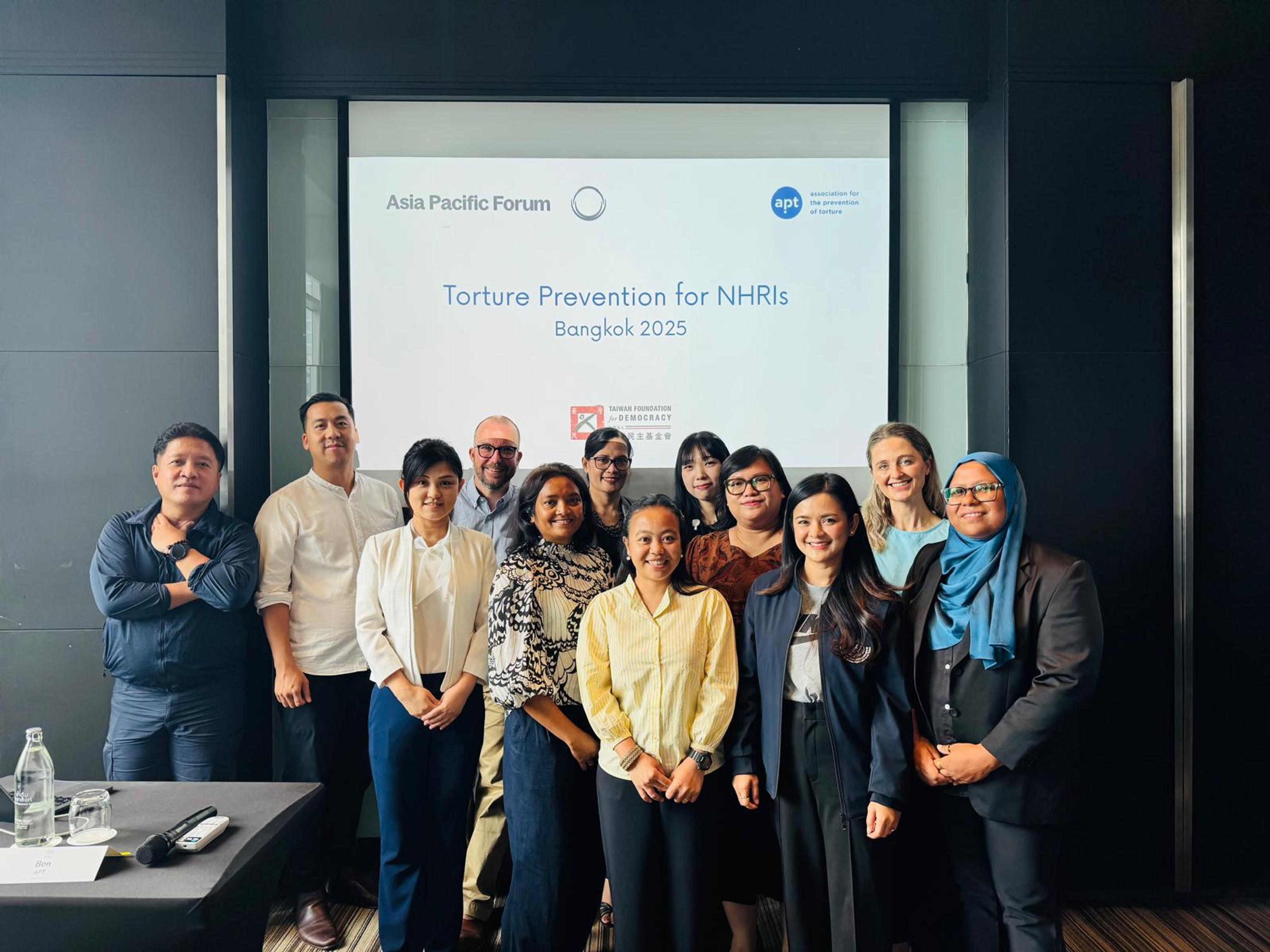APF people profile: Phillip Wardle, Legal and Policy Manager
Working with grassroots rights advocates in the Philippines inspired Phillip Wardle to pursue a career dedicated to strengthening human rights.

Name and role:
Phillip Wardle, Legal and Policy Manager, Asia Pacific Forum of National Human Rights Institutions (APF).
Could you tell us a bit about your role?
I wear a few different hats at the APF, including overseeing the APF’s work on National Human Rights Institutions (NHRI) accreditation with the Global Alliance of National Human Rights Institutions (GANHRI). I support our members who are undergoing the accreditation review process, and new institutions that are seeking accreditation for the first time, and represent the APF on GANHRI’s accreditation body: the Sub-Committee on Accreditation (SCA).
I also provide technical assistance to governments who are planning to establish an NHRI, or to our members who are advocating for changes to their legal mandate. This involves advising on proposed legislation and policy, and working with our members and other international partners to facilitate broader consultation processes and other awareness-raising activities.
I am also involved in other legal and policy work at the APF, such as assisting our members with domestic advocacy interventions, developing regional policy positions for the APF, and research on specific human rights topics.
"It’s an immense privilege to work alongside the dedicated human rights defenders from across the APF membership, many of whom put themselves at great risk to speak out against injustice and for the most vulnerable."
What’s the most challenging aspect of your job?
I would say the toughest part of my job is not being able to connect with our members on a regular basis in person. A lot of our work depends on strong working relationships – not just with our members, but also with our partner organisations – and as a regional organisation that works remotely, we have to do much of this work online and over email. While the COVID-19 pandemic has given us new skills in virtual communication, I still value the opportunity to travel and meet with our members in person whenever I can.
Why did you decide to work in human rights?
It was probably my earlier career experience as a graduate lawyer and Australian AID Youth Ambassador in the Philippines that really solidified my commitment to a career in human rights.
I spent a two-year assignment working with the Commission on Human Rights of the Philippines (CHR) and their NGO partner, the Institute for Popular Democracy, on a research and advocacy project on housing rights and forced evictions in Manila. Doing human rights fact-finding and working with urban communities impacted by evictions was a confronting experience, but also inspiring to see the strength of grassroots community-based advocacy movements, and how NHRIs can support their participation in government policy making and the international human rights system.
Working with the amazing team at the CHR showed me first-hand what a difference an NHRI can make in shaping public policy and attitudes on many social issues. While I was interested in a human rights career before my time in Manila, working with human rights advocates in the Philippines encouraged me to build a career in human rights. The CHR team continues to inspire me every day, so it’s wonderful to be able to reconnect with them again in my current role.
What is your proudest achievement?
There’s a lot to be proud of at the APF! I’m certainly proud to be part of a movement that supports human rights across the region, although I would probably say that my time working in the Philippines was a highlight. Being part of a project that united community with government around a single vision was so rewarding and a perspective I hope to bring to all my work.
And finally, what is your favourite book?
It might seem unusual to list a cookbook as favourite, although ‘Jerusalem’ by Yotam Ottolenghi and Sami Tamimi would have to be my number one. It’s definitely the most frequently used in our household, as we absolutely love the food of Palestine and the broader West Asia region. I think food and the institution of sharing a meal can offer a simple, albeit fleeting, escape from the political division so many of us face across the world.
Date: 25 January 2024
Related News
Image credits
Phillip Wardle - Photo by Amy Janowski






